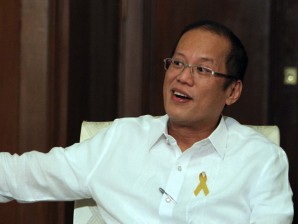The practice of appointing the most senior member of the Supreme Court as the next Chief Justice “may be good,” but President Benigno Aquino is not bound by the Constitution to observe the tradition, two members of the Judicial and Bar Council (JBC) said Monday.
Senator Francis Escudero said the suggestion of former Energy Secretary Raphael Lotilla that the replacement of dismissed Chief Justice Renato Corona should be the most senior member of the chamber was not stated in the Constitution.
“It’s good to keep our options open, but I don’t want to prejudge my vote. If there are no [constitutional] prohibitions, we’re free to choose from inside or outside the court,” Escudero told reporters.
“We’re not prohibited and bound by it because [the seniority rule] is not mentioned under the Constitution and the JBC rules. He (Lotilla) admitted himself that it was just a tradition and a practice,” he added.
Escudero also noted that the practice was not observed when Artemio Panganiban replaced Chief Justice Hilario Davide Jr. in 2005.
Reynato Puno, who was eventually appointed to replace Davide by former President Gloria Macapagal-Arroyo in 2007, was then the most senior magistrate.
Milagros Fernan-Cayosa, who represents the Integrated Bar of the Philippines in the JBC, said: “I think that’s his (Lotilla) personal opinion, but it does not detract from the fact that the President has leeway to choose from within or outside the Supreme Court.”
Cayosa said while it was a “good tradition,” the public should respect the President’s prerogative to appoint the highest official of the judiciary.
